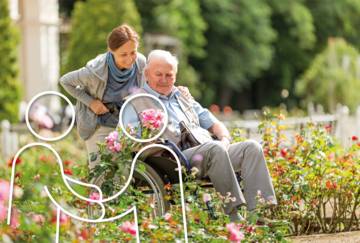
It’s possible to pay a family caregiver for their services, and various ways to do this are currently available.
Friday, 4 february 2022
According to the BPCE L’Observatoire study Focus on caregivers, 39% of caregivers have already heard of the possibility to pay someone providing personal-care services to one of their own family members provided they agree to become the employee of the person in their care, a possibility that 77% of the caregivers find attractive!
In the minds of the French, being a caregiver is still overwhelmingly associated with voluntary, unpaid work. The question of remuneration for family caregivers has long remained a taboo subject given that the provision of personal-care services is considered to be something ‘natural’ and ‘disinterested’… and therefore ‘provided free of charge.’ Attitudes in this regard, however, are changing, a sign of the growing awareness of how providing care can have an impact on the caregiver’s professional life and, consequently, on their economic situation. According to BPCE L’Observatoire, 8% of active caregivers have had to give up their professional activities and 18% have been obliged to reduce their working hours, resulting in a sometimes significant drop in income… not to mention the caregivers who continue working to avoid lost earnings but at the cost of physical and mental exhaustion!
There are many ways in which caregivers can be paid for their services. The caregiver can be paid as a home helper by the person they care for – who then becomes his or her employer – notably within the framework of the universal service employment vouchers (known as CESU in France). Under certain conditions, the personalized autonomy allowance (allocation personnalisée d’autonomie, or APA) or the compensatory disability benefit (prestation de compensation du handicap, or PCH) can be used to pay or compensate family caregivers, supplemented since the end of 2020 by the daily allowance for family caregivers (allocation journalière du proche aidant, or AJPA) for periods requiring the caregiver temporarily to stop working. All of these measures are well received by the French: more than three quarters of them, caregivers or not, consider the possibility of paying a family member providing personal-care services to be a positive development, even if this possibility could be more widely publicized given that only 39% of caregivers have heard of it (and only 21% of people not providing personal care).

Pour en savoir plus
-
Pour découvrir l’étude complète "Le temps des aidants" (BPCE L’Observatoire)
DOCUMENT PDF
Download5 Mo